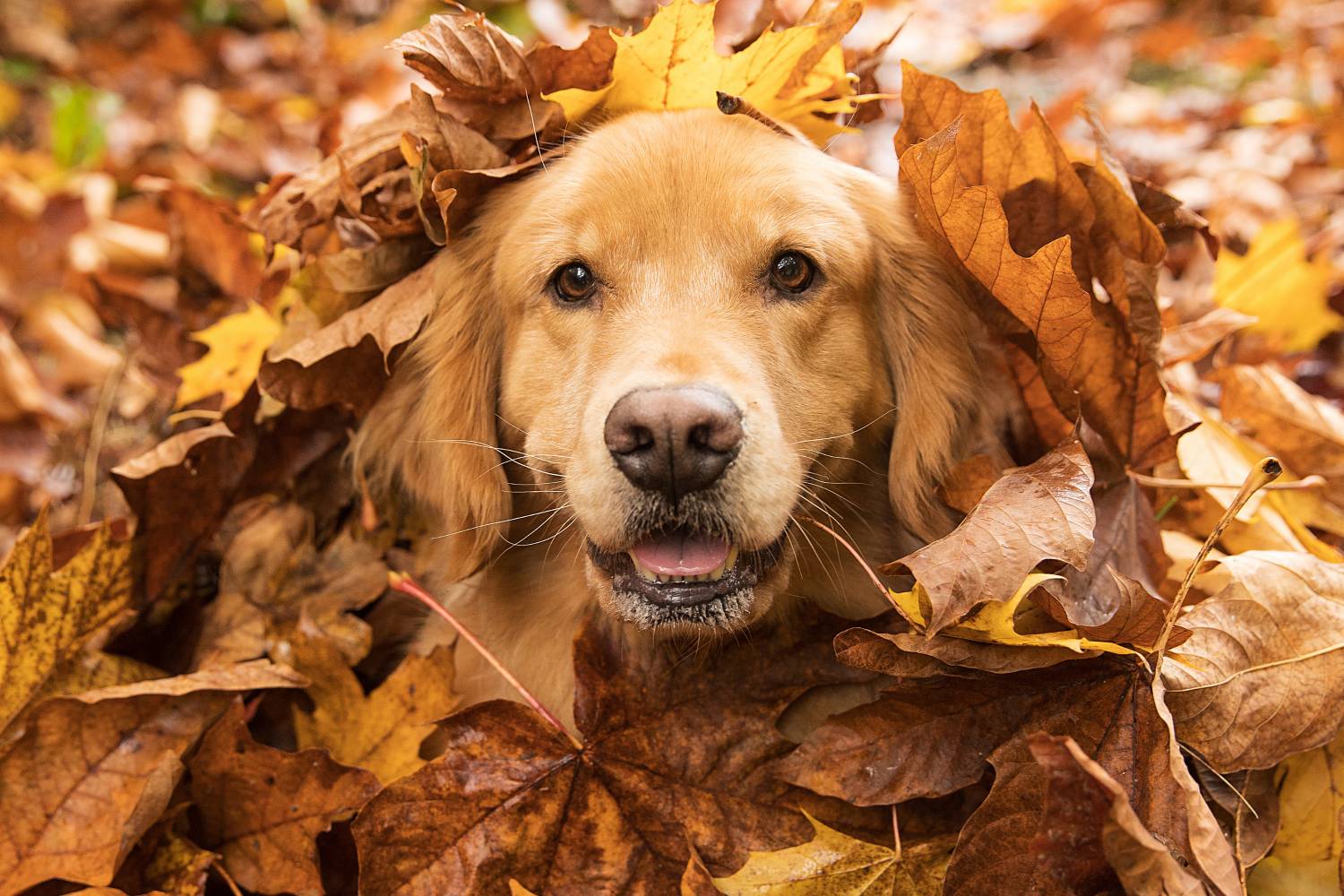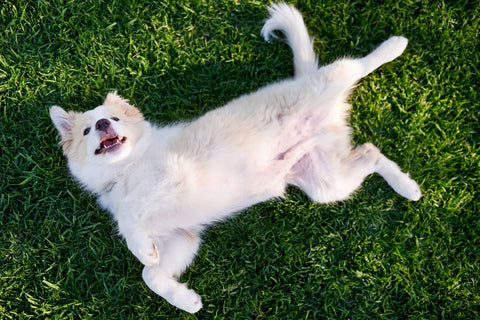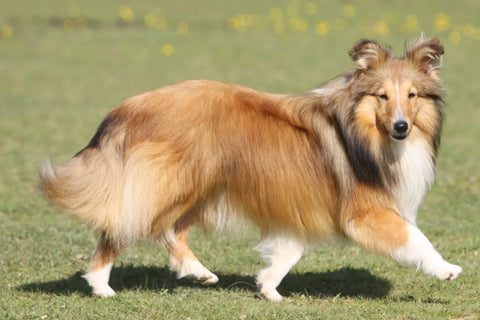
Can Dogs Get Hiccups? What's Normal and What To Watch For
When your pup suddenly starts making those characteristic hiccup sounds, it can be adorable but also a little concerning. Just like humans, dogs can experience hiccups. While it's usually normal and harmless, canine hiccups can be a window into their overall health.
As devoted pet parents, understanding the quirks of our dogs' health is vital, and hiccups are no exception. In this guide, we'll explore the nature of dog hiccups, distinguishing between what's perfectly normal and the signs that warrant a closer watch.
Why Do Dogs Get Hiccups?
Hiccups in dogs may seem odd, but they're more common than you might expect. To understand hiccups, consider the diaphragm or the muscle separating the chest from the abdomen.
When it spasms involuntarily, the abrupt rush of air against the voice box creates the unmistakable “hic!” sound. In dogs, this can be triggered by excitement, eating or drinking too fast, or even irritation of the stomach or throat. The physiology of canine hiccups isn't far from our own.
When a dog's diaphragm contracts rapidly, the closed glottis stops air from entering the lungs, which results in the hiccup sound. This is typically a benign phenomenon lasting from a few minutes to hours. Though generally not a cause for concern, understanding the triggers can help pet owners ensure their furry friends stay comfortable and hiccup-free.
How Do Hiccups in Puppies vs. Adult Dogs Differ?
The frequency of hiccups can vary between puppies and adult dogs. Puppies often hiccup much more, attributed to their energetic playfulness and less mature digestive systems.
They may also experience hiccups after a bout of rapid eating, excessive drinking, or overexcitement. This is all part of normal growth, and as they mature, these hiccup episodes typically wane.
By adulthood, dogs usually exhibit a marked decrease in hiccup episodes. This change can be chalked up to a more relaxed demeanor and a more developed digestive system. However, this doesn't mean adult dogs are completely immune to hiccups. They can still experience them, albeit less frequently.
For adult dogs, persistent hiccups could occasionally point to dietary indiscretions or health issues. Each dog has its own “hiccup threshold", and what’s normal for one may not be for another.
Observant pet owners can gauge their dog's normal behavior and detect when a hiccup pattern deviates from the norm, indicating when it might be more than just a passing spasm.
What Are the Symptoms of Hiccups in Your Dog?
Recognizing hiccups in your dog can be quite straightforward if you know what to look for. A hiccup may manifest as a small hic sound, a slight jerking motion of the chest, or even an abrupt inhalation that seems to catch your dog by surprise.
Sometimes, it's a combination of these signs, visible while resting or after a joyful play session. Normal hiccups are sporadic and short-lived and shouldn't cause your dog any distress. With their boundless energy and curiosity, puppies may hiccup and then go right back to their play, unfazed.
Older dogs might pause momentarily during a hiccup episode and then continue with their daily activities. This kind of hiccup behavior reflects the typical and harmless nature of this physiological quirk.
When Are Hiccups a Sign of Something More?
Sometimes, hiccups can be a sign of something more. If hiccups in your dog become a frequent occurrence or are paired with symptoms like lethargy, coughing, or difficulty breathing, it's time to pay closer attention.
Extended hiccup episodes, especially those that last for hours or occur frequently over days, could indicate an underlying condition. These could be as simple as gastrointestinal disturbances or as complex as respiratory issues or even nervous system problems.
If you notice your dog experiencing prolonged hiccups or any additional concerning symptoms, it's a good idea to consult a vet.
How Does Diet and Nutrition Affect Hiccups?
Diet and nutrition play a significant role in your dog's overall health and, by extension, in managing hiccup episodes. Just as the right ingredients can boost health, the wrong ones can lead to discomfort or even health issues that manifest in signs like hiccups.
A balanced diet that is easy on the stomach can help prevent the quick ingestion of air that often leads to hiccups. A Pup Above meticulously crafts dog food with this balance in mind. Our gently cooked, sous-vide food maximizes flavor and nutrition and ensures that meals are digestible and satisfying.
Quality ingredients that support a healthy digestive system can be beneficial. For instance, foods high in fiber can promote good digestion and minimize excessive air swallowing, a common hiccup culprit. Conversely, avoiding foods that cause gas or stomach upset can also be helpful.
Ingredients to look out for are those your dog may be sensitive to, which can vary from one dog to another. Keeping a food diary can help pinpoint any specific ingredients that might trigger an upset stomach and hiccups.
What Are the Home Remedies for Hiccups?
For the occasional hiccup, you can offer comfort to your furry friend with a few simple home remedies. Gentle belly rubs or a calm petting session can help to relax your dog's diaphragm and potentially stop the hiccups.
Light exercise or a play session could distract them and naturally cease the hiccup spell. Additionally, ensuring your dog slows down when drinking water can prevent air gulping and may help shorten the hiccup episode.
However, it's crucial to know when these small interventions are not enough. If hiccups persist beyond a day, occur frequently over a short period, or are accompanied by vomiting, lack of appetite, or lethargy, it's time to seek veterinary advice.
A Pup Above emphasizes the importance of food safety and pet health, which extends to knowing when professional help is needed. Persistent or severe hiccups could be symptomatic of more significant issues, such as respiratory problems, gastrointestinal disturbances, or even nervous system disorders, which require the insight of a vet.
A Nourishing Conclusion to Hiccups
It's heartening to know that most canine hiccups are just a minor bump on the road — here one moment, gone the next. Simple home remedies often do the trick for those occasional hiccups that last a little longer. But for the hiccups that linger, it's reassuring to know that professional veterinary advice is just a phone call away.
In every hiccupy scenario, nutrition plays a supportive role. A Pup Above is here to provide meals catering to your dog's taste buds and their well-being every step of the way.
Whether it's a harmless hic or a sign of something more, staying informed, observant, and ready to act is all part of the loving commitment we make to our pets. Through it all, A Pup Above champions the cause of pet health and happiness with food that's safe, nutritious, and always crafted with love.
Sources:
What is the Diaphragm? | Cleveland Clinic
Hiccups: A new explanation for the mysterious reflex | PMC
Digestive System of the Dog | Veterinary Teaching Hospital | Washington State University
Canine Respiratory Disease Advisory | Cornell University College of Veterinary Medicine
Top Stories

Why Do Dogs Lick Their Paws?

Why Do Dogs Whimper & Make Noises in Their Sleep?

Healthy Vet-Approved Homemade Dog Food Recipes

How To Cook Sweet Potatoes for Dogs






















